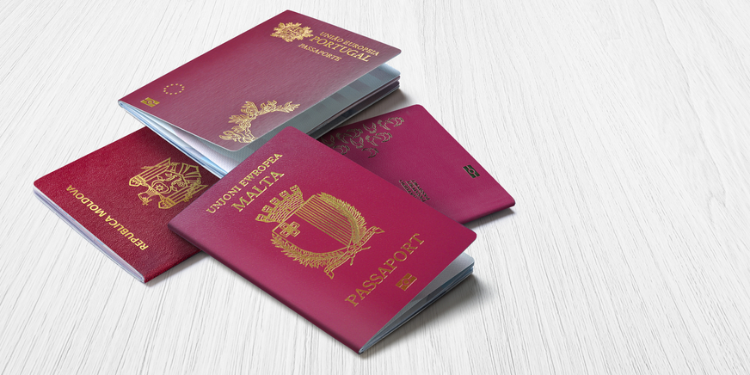
Could wealthy foreigners anticipate a resurgence of the "golden passport" in Europe? Recent developments in Malta suggest that all possibilities remain on the table. Other European nations may be drawn to this contentious program despite persistent severe criticism from the European Commission. Here's a detailed insight.
European citizenship through investment: Malta's stance amid EU scrutiny
For years, the European Commission has urged member states to abolish their Golden Visa programs, which include both residency rights and citizenship (known as golden passports) in exchange for a financial investment. Brussels targets these programs in its broader efforts against money laundering and tax evasion, framing the crackdown as essential for fostering greater social justice among Europeans. Such investment-based routes are viewed as shortcuts through the normally lengthy and stringent naturalization processes.
While several European nations like Cyprus and Bulgaria have yielded to Brussels' pressure, Malta stands firm. Its program, termed "Citizenship by Naturalization for Exceptional Services by Direct Investment" (MEIN), presents two pathways: one grants Maltese citizenship within 36 months for an investment of 600,000 euros, while the other offers citizenship in just 12 months for 750,000 euros—a timeframe significantly shorter than the typical five-year wait in most European countries. Additionally, the investments may involve real estate. Obtaining Maltese citizenship also means acquiring European citizenship, given Malta's EU membership.
Citizenship by investment: Malta's defiant stand
Does Malta's citizenship program contravene European laws? This is the claim of the European Commission, which highlights EU directives on European citizenship and the cooperation required among member states on issues of common interest. In October 2020, proceedings were initiated by the Commission against both Malta and Cyprus, resulting in Cyprus discontinuing its golden visa program. However, this move failed to appease the Commission, nor did Malta's lack of response.
On September 29, 2022, the European Commission escalated matters by bringing Malta before the European Court of Justice (ECJ), accusing it of violating EU law. The Commission argued that the citizenship Malta offers in exchange for investments, which lack genuine ties to the nation, is contrary to European legal standards. EU Commissioner Didier Reynders stated firmly that “EU values are not for sale.” This lawsuit marked a precedent, with potentially severe financial penalties for Malta and
bolstering the Commission's stance against golden passports.
However, a significant twist occurred on October 4: Michael Collins, the EU's Advocate General, asserted that European citizenship does not necessitate authentic connections with the member state, thus suggesting the arguments from European officials carried no legal weight. He emphasized that the jurisdiction over nationality solely rests with individual member states, a principle enshrined in Declaration No. 2 of the Treaty on European Union. States are advised not to meddle with the nationality criteria set by another EU country. According to Collins' findings, an EU member state is permitted to “sell” its citizenship as it sees fit, provided it maintains due diligence. He recommended that the ECJ dismiss its case against Malta.
Golden Visa reform in Malta: Implications for Europe
The European Commission faces a potential setback. Should the European Court of Justice (ECJ) find Malta's program in line with EU laws, it would open the door for states to potentially (re)introduce Golden Visas that grant citizenship through investment. Nonetheless, it appears improbable that member states would welcome EU oversight on their citizenship policies, even under the guise of enhancing border security. Similarly, amending the treaty to restrict the free movement associated with Golden Visas seems unlikely.
The focus of the European Commission remains on the few member states still offering Golden Visas. Presently, only three countries—Malta, Cyprus, and Bulgaria—grant European citizenship through investment. Bulgaria recently became a partial member of the Schengen Area on March 31, 2024, along with Romania. Cyprus, embroiled in several scandals, contemplated discontinuing its golden passport program in 2020. Initiated in 2013, the Cypriot scheme attracted approximately 4,000 affluent foreigners, generating over 8 billion euros in revenue. This influx of foreign capital was a strategy to mitigate the impacts of a financial crisis. Nonetheless, Brussels identified numerous irregularities and suspected corruption within the program.
Golden passport in the EU: A turning tide?
On January 12, 2022, Bulgaria passed legislation to abolish its golden passport program as part of its anti-corruption initiatives. Launched in 2013, Bulgaria's citizenship by investment program drew scrutiny similar to those in Cyprus and Malta. The potential ECJ dismissal in Malta's case might prompt Bulgaria and Cyprus to reconsider or reactivate their programs. Other EU countries could be tempted to introduce similar schemes.
Hungary preempted any guidance from the EU Advocate General by reinstating its Golden Visa program, previously halted in 2017, effective from July 1, 2024. Depending on the chosen path, wealthy foreigners can secure permanent residency within three years, with the possibility of applying for citizenship after an additional five years. The outcome of the ECJ's decision and the European Commission's subsequent response remain highly anticipated.



















